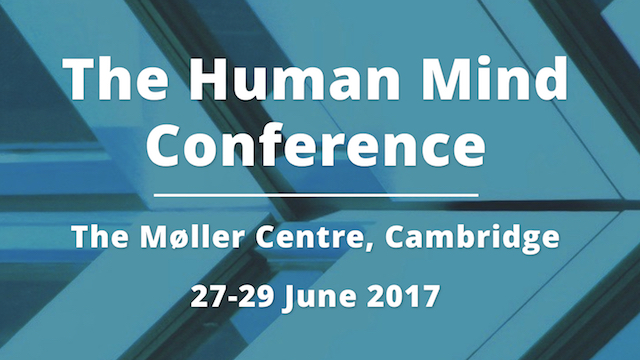Philip Gerrans, "An integrative account of the emotions"
Duration: 25 mins 57 secs
Share this media item:
Embed this media item:
Embed this media item:
About this item

| Description: | This is a talk from Philip Gerrans (University of Adelaide). It formed part of Session Four of The Human Mind Conference, "The Subject’s Point of View: Intentionality & Emotion." |
|---|
| Created: | 2017-10-24 17:55 |
|---|---|
| Collection: | The Human Mind Conference |
| Publisher: | University of Cambridge |
| Copyright: | Philip Gerrans |
| Language: | eng (English) |
| Distribution: |
World
|
| Explicit content: | No |
| Aspect Ratio: | 16:9 |
| Screencast: | No |
| Bumper: | UCS Default |
| Trailer: | UCS Default |
| Abstract: | How do the psychological and neural mechanisms of emotions underlie the subject’s point of view on the world? I propose a short, descriptive answer: by exploiting the mechanisms the mind uses to represent its world (including the human body). Emotional processes use cognitive processes that represent the world, to tell us how states of the world matter to our goals (their subjective relevance in the jargon). Some goals are biologically basic (homeostatic maintenance) others are quite abstract and require conceptual personal level representation. They represent subjective relevance at different levels of cognition. The neural correlates consistently implicated in emotional processes, namely the ventromedial prefrontal cortex (vmpfc) and amygdala (am) are key hubs of an emotional processing hierarchy that exploits perceptual, inferential and other mechanisms at different levels of cognitive processing to detect subjective relevance and coordinate adaptive responses. Thinking of emotions this way provides a satisfying interpretation of the relationships between low (such as an immediate flush of anger) and high (such as simmering resentment) level emotions. It also explains the relationship between emotional, perceptual, inferential and other cognitive processes. I illustrate this idea using disorders of emotion and affect and use it to diagnose and reconcile disagreements among theorists of emotion. The answer to the question posed by the organisers of the conference is that emotions represent not just how the world is, but how the world matters to the to the subject. They don’t track truth but salience and value. |
|---|---|
Available Formats
| Format | Quality | Bitrate | Size | |||
|---|---|---|---|---|---|---|
| MPEG-4 Video | 640x360 | 1.93 Mbits/sec | 377.56 MB | View | Download | |
| WebM | 640x360 | 637.9 kbits/sec | 121.32 MB | View | Download | |
| iPod Video | 480x270 | 520.39 kbits/sec | 98.91 MB | View | Download | |
| MP3 | 44100 Hz | 249.88 kbits/sec | 47.52 MB | Listen | Download | |
| Auto * | (Allows browser to choose a format it supports) | |||||

